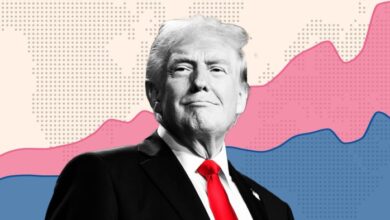If you’re under 50 today, could you live to 150? Geneticists and aging researchers weigh in


At the turn of the 20th Century, one could expect to live until 47 in the U.S. Now, medical advancements, like vaccines and antibiotics, and public health initiatives have increased life expectancy in the U.S. to 77 years old and 73 globally.
While health conditions and systemic barriers like socioeconomic inequities and environmental conditions play a role in how long you live, researchers are finding that through individual lifestyle modifications and precision medicine, there are ways to counter the mechanisms behind aging to potentially help people live even longer and healthier.
“Healthy longevity medicine is not science fiction anymore,” Dr. Andrea Maier, a professor in medicine and functional aging at the National University of Singapore and the founding president of the Healthy Longevity Medicine Society, told Fortune at the Longevity Investors Conference in Gstaad, Switzerland last month. “We understand why we age. We understand, especially through life interventions, how to intervene.”
The idea that we play a role in how well we age has led to a proliferation of biohackers or longevity optimists confident they will live to 150—and even beyond—because they are willing to experiment with the latest interventions to optimize health. Kayla Barnes, CEO of LYV Wellness, an LA-based longevity clinic, previously told Fortune she hopes to live 150 healthy years alongside her husband. At the same time, the entrepreneur turned biohacker Bryan Johnson doesn’t have a goal age but is preaching his motto “Don’t die” for as long as possible.
But how long will it really be possible to live, according to available science?
How long can we expect to live?
Those under 50, who will have the most time to take advantage of emerging research, therapeutics, and interventions, can likely expect to live up to 100, says Dr. Evelyne Bischof, an internal medicine physician, oncologist, and vice president of the Healthy Longevity Medicine Society.
Alina Su, an aging researcher at The Conboy Laboratory at UC Berkeley and a biomedical PhD candidate at Harvard, is even more hopeful.
“Living well beyond 100—potentially up to 120 or more—isn’t just a dream. It can be a reality for those who are serious about optimizing their health,” says Su, cofounder of Generation Lab, a precision medicine company. “With the rapid pace of innovation in anti-aging research, we’re seeing new therapies, gene editing, personalized medicine, and other things that will push the upper limits of human lifespan.”
The world’s leading geneticist, Dr. Nir Barzilai, who is the director of the Institute for Aging Research at the Albert Einstein College of Medicine, tells Fortune that while he cannot predict society’s potential longevity, the maximum human life span is around 115 years today (the woman thought to be the oldest person in the world died at 122 in 1997). Barzilai says how much longer we can live depends on the efficacy of the evolving aging research coming to light in the next few decades.
“Aging drives age-related disease. Therefore, you want to stop aging, and so we want to spend our time treating our health, rather than spend our time treating a disease,” says Barzilai, who also holds titles as a board member at the American Federation for Aging Research (AFAR) and investigator of the AFAR SuperAgers Family Study. “We know we can target aging … depends how fast funding can accelerate it.” He emphasizes that educating the public on ways to intervene will make a difference in meaningfully extending life.
To live past 100 today, Barzilai says it’s about following basic guidelines around exercise, nutrition, and managing stress while also keeping an eye on the next frontier of longevity science—which he believes to be a combination of precision medicine, AI interventions, and gerotherapeutics or drugs to target the underlying processes of aging.
Still, Barzilai, Bischof, and Maier, who are working to create standards in the field of longevity medicine, say it’s much more about how well you live than how long you live.
“The question is, will they live up to 100 in good health, or will the last usually 20% see a significant decline in function?” says Bischof, who also spoke at the Longevity Investors Conference. Closing the healthspan-lifespan gap is the most imperative, she adds.
The health optimizers
Those who will substantially extend life and close the healthspan-lifespan gap will treat their body like a “top sport,” Maier says. “I really think that we should not treat our body as a snapshot, but a story and the story can only be written if you have more words, which means that you should test the body continuously,” she says, touting the growing field of precision geromedicine (therapeutics to tackle aging depending on the person’s biomarkers and genetic makeup), which requires testing and tracking to influence habits. The most common types of tracking include wearing a glucose monitor, sleep tracker, and activity monitor.
Right now, partaking in the craze to extend life is reserved for those with the time and financial resources to pay out of pocket for additional testing, wearables, and subscription-based longevity clinics.
“For today’s under-50 population, the key lies in how much they’re willing to invest in their health now. The more proactive individuals are, the more years they’re likely to add to their lives,” Su says. “In essence, we’re entering an era where personal health choices could lead to dramatically different outcomes. The decision to optimize one’s health today could mean the difference between a standard lifespan and an extended, vibrant life well past the century mark.”
Dr. Matthew Pywell, who founded the Apex Medical Academy, which educates health professionals on preventative health care and healthy aging, says that while we know that it’s possible to hit that 120 mark as a species, the question will be how to deliver longevity interventions to the masses and not merely the 1%.
Those at the forefront of longevity equity are looking to put healthy aging innovations into health care systems and meet people where they are—although it’s clear there is a long way to go to ensure that longevity medicine doesn’t exacerbate existing inequalities.
“There are lots of private clinics. We now understand that we have to educate not only physicians but also all other healthcare professionals. We have to educate laymen and then really bring this new model of medicine into clinical care to really change the health trajectory [of more people],” Maier says.
For more on healthy aging:






